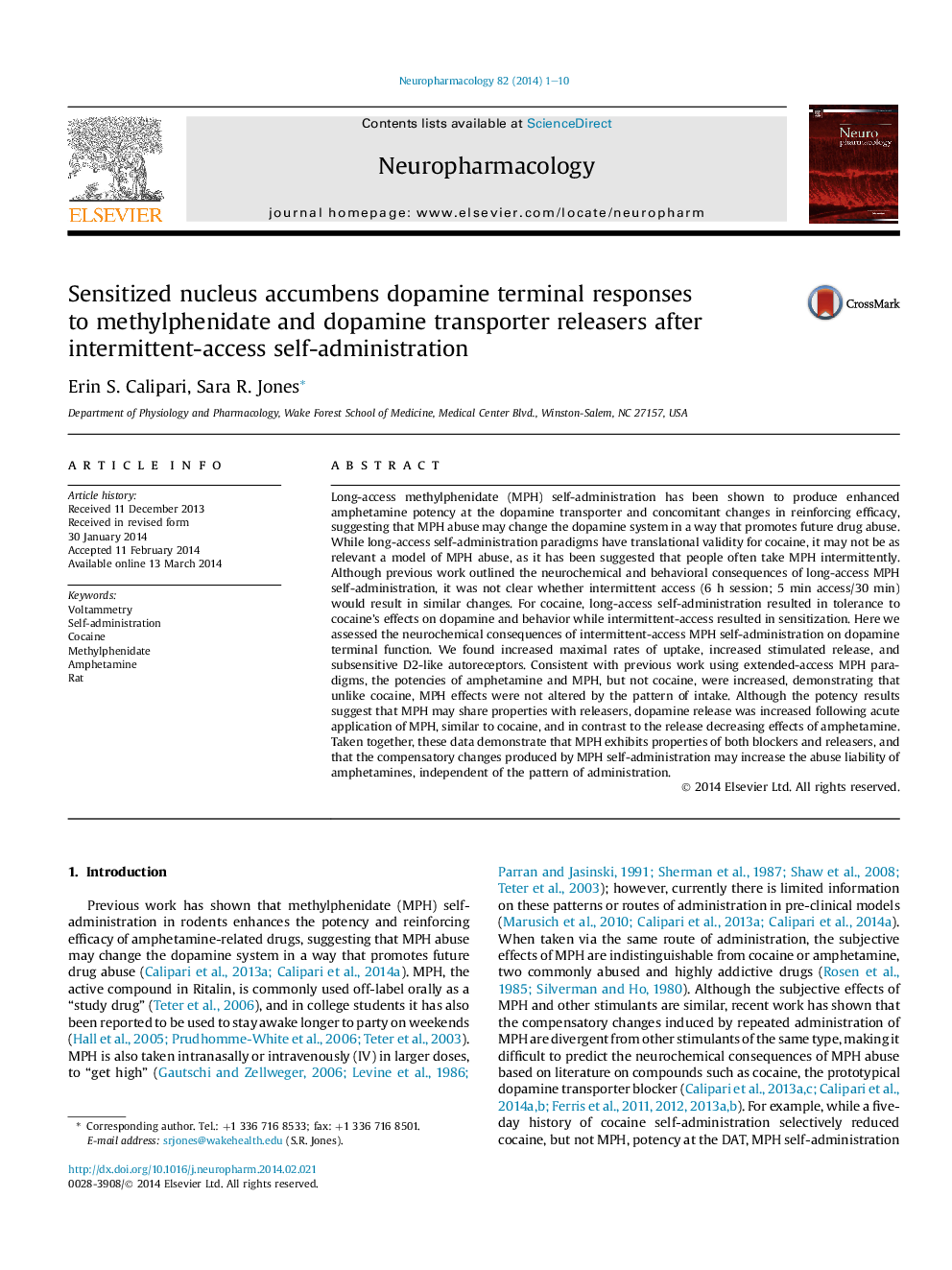| Article ID | Journal | Published Year | Pages | File Type |
|---|---|---|---|---|
| 5814519 | Neuropharmacology | 2014 | 10 Pages |
Abstract
Long-access methylphenidate (MPH) self-administration has been shown to produce enhanced amphetamine potency at the dopamine transporter and concomitant changes in reinforcing efficacy, suggesting that MPH abuse may change the dopamine system in a way that promotes future drug abuse. While long-access self-administration paradigms have translational validity for cocaine, it may not be as relevant a model of MPH abuse, as it has been suggested that people often take MPH intermittently. Although previous work outlined the neurochemical and behavioral consequences of long-access MPH self-administration, it was not clear whether intermittent access (6Â h session; 5Â min access/30Â min) would result in similar changes. For cocaine, long-access self-administration resulted in tolerance to cocaine's effects on dopamine and behavior while intermittent-access resulted in sensitization. Here we assessed the neurochemical consequences of intermittent-access MPH self-administration on dopamine terminal function. We found increased maximal rates of uptake, increased stimulated release, and subsensitive D2-like autoreceptors. Consistent with previous work using extended-access MPH paradigms, the potencies of amphetamine and MPH, but not cocaine, were increased, demonstrating that unlike cocaine, MPH effects were not altered by the pattern of intake. Although the potency results suggest that MPH may share properties with releasers, dopamine release was increased following acute application of MPH, similar to cocaine, and in contrast to the release decreasing effects of amphetamine. Taken together, these data demonstrate that MPH exhibits properties of both blockers and releasers, and that the compensatory changes produced by MPH self-administration may increase the abuse liability of amphetamines, independent of the pattern of administration.
Related Topics
Life Sciences
Neuroscience
Behavioral Neuroscience
Authors
Erin S. Calipari, Sara R. Jones,
